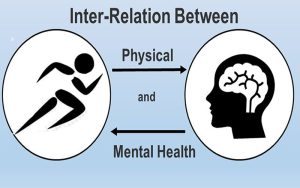
Allergies occur when the immune system overreacts to substances that are usually harmless. These substances, known as allergens, can trigger an allergic response resulting in various symptoms. Common allergens include pollen, pet dander, dust mites, mold, certain foods, and medications. Understanding the triggers and treatment options for allergies can greatly help individuals navigate and manage their symptoms.
Identifying Allergy Triggers
Identifying specific triggers for allergies is essential in order to minimize exposure and prevent allergic reactions. Here are some common triggers:
Pollen
Pollen from trees, grasses, and weeds is a significant allergen for many individuals. It is important to stay updated on pollen forecasts and avoid spending extended periods outdoors during high pollen counts.
Pet Dander
Animal fur, skin flakes, urine, and saliva can trigger allergies in sensitive individuals. Regular grooming and cleaning, as well as creating pet-free zones within the home, can help reduce exposure.
Dust Mites
Dust mites are tiny creatures that thrive in warm and humid environments. They can be found in bedding, upholstered furniture, and carpets. Regularly washing bedding in hot water, using allergen-impermeable covers, and vacuuming frequently can limit their presence.
Mold
Mold spores are found both indoors and outdoors. Wet and damp areas such as bathrooms, basements, and kitchens are common breeding grounds for mold. Proper ventilation and timely removal of visible mold can help prevent allergic reactions.
Foods
Many individuals experience allergic reactions to certain foods such as peanuts, tree nuts, eggs, milk, wheat, soy, fish, and shellfish. Identifying and avoiding trigger foods is vital for those with food allergies.
Medications
Certain medications, such as antibiotics and pain relievers, can also cause allergic reactions in some individuals. It is important to inform healthcare providers about any known allergies before starting a new medication.
Treatment Options
Effective treatment options are available to manage and alleviate allergy symptoms. Consult with a healthcare professional to determine the best approach based on individual needs.
Antihistamines
Antihistamines are commonly used to relieve symptoms like itchy or runny nose, sneezing, and hives triggered by allergies. They work by blocking histamine, a chemical released during an allergic response.
Nasal Sprays
Nasal sprays containing corticosteroids can help reduce inflammation in the nasal passages. They provide relief from congestion, sneezing, and nasal itching.
Allergy Shots
Also known as immunotherapy, allergy shots involve injecting small amounts of allergens over time, gradually desensitizing the immune system. This treatment can help reduce the severity of allergic reactions in the long term.
Allergen Avoidance
Avoiding known allergens is often the first line of defense against allergies. Taking steps to minimize exposure, such as using air purifiers, dust-proof covers, and maintaining clean indoor environments, can significantly reduce symptoms.
Emergency Medication
For severe allergic reactions, emergency medications like epinephrine may be necessary. These medications can quickly reverse life-threatening symptoms, such as difficulty breathing and a drop in blood pressure. Immediate medical attention is crucial in such cases.
Conclusion
Understanding allergy triggers and available treatment options is essential for individuals looking to manage their allergies effectively. Avoiding allergens, using medications, and seeking medical advice when needed can greatly improve the quality of life for allergy sufferers. By taking proactive steps and utilizing the numerous resources available, individuals can find relief from their allergies and regain control over their daily lives.

